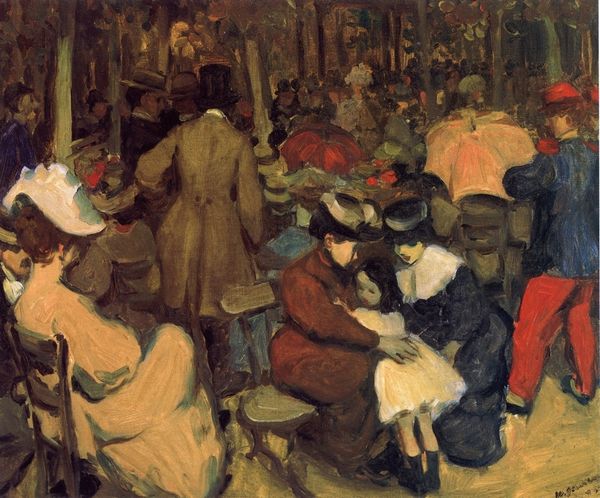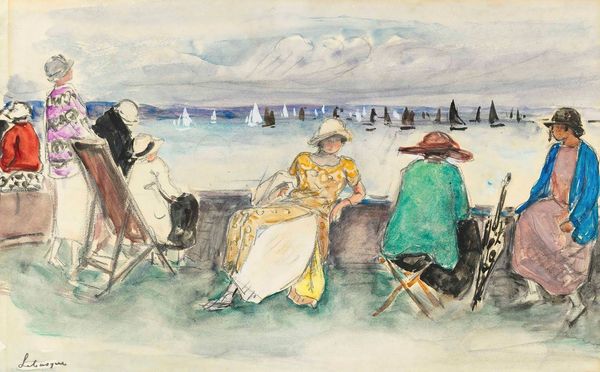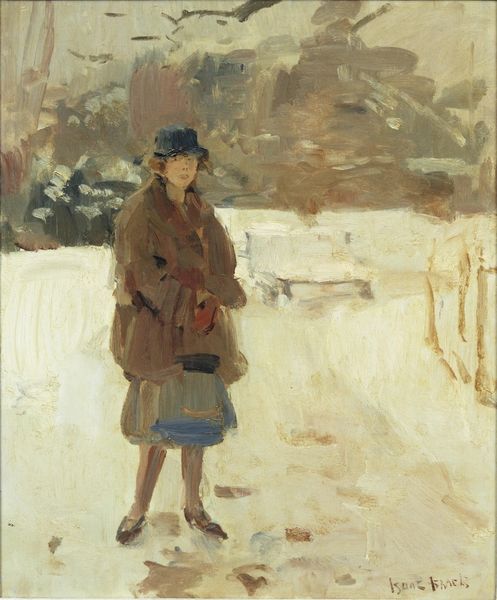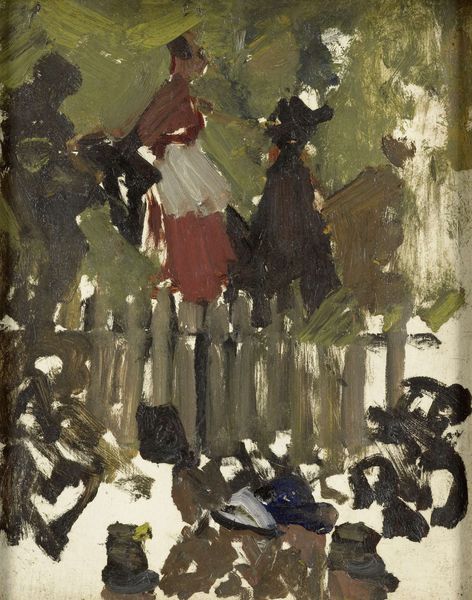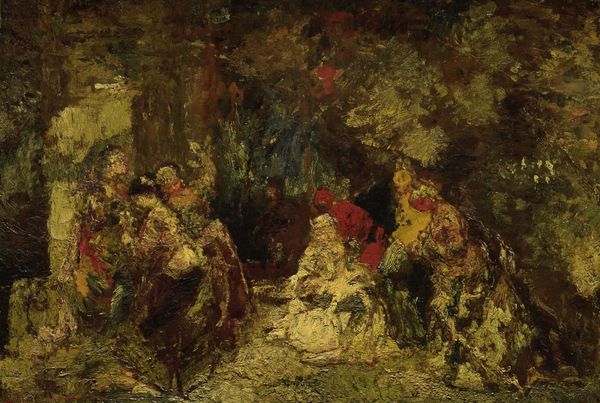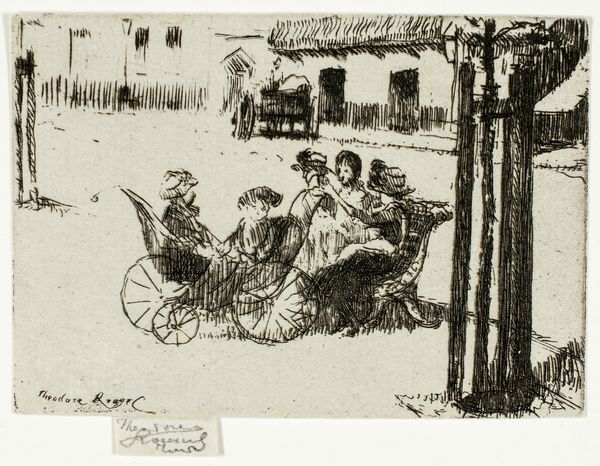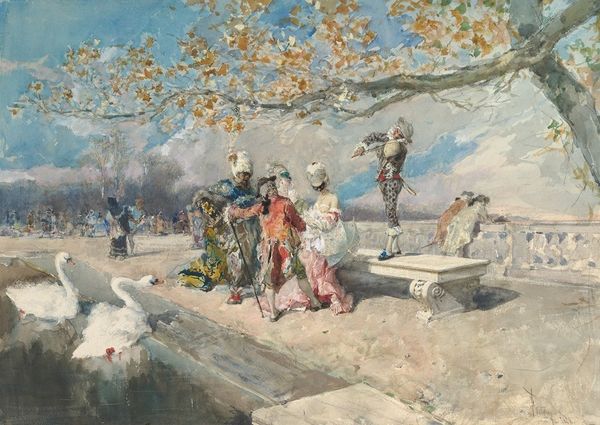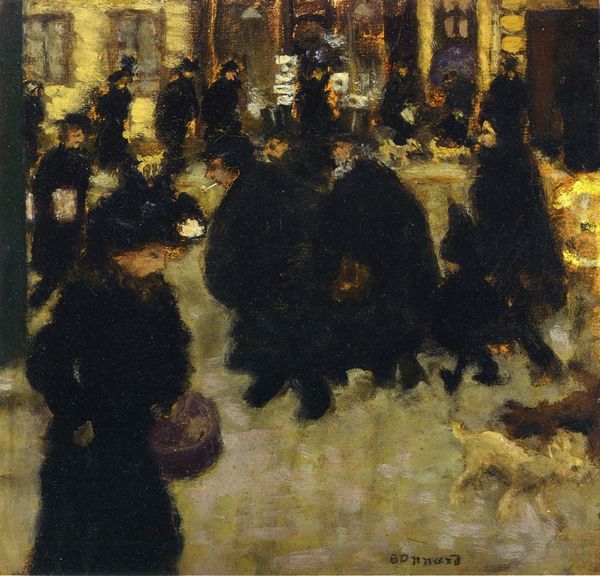
Women in the Royal Gardens 1937
0:00
0:00
theophrastostriantafyllidis
National Art Gallery (Alexandros Soutzos Museum), Athens, Greece
#
abstract expressionism
#
abstract painting
#
impressionist landscape
#
possibly oil pastel
#
oil painting
#
fluid art
#
acrylic on canvas
#
underpainting
#
painting painterly
#
watercolor
Dimensions: 44.7 x 28.6 cm
Copyright: Theophrastos Triantafyllidis,Fair Use
Curator: This is Theophrastos Triantafyllidis’s "Women in the Royal Gardens", created in 1937 and now residing at the National Art Gallery in Athens. Editor: My initial impression is a feeling of gentle melancholy. The colors are muted, the forms softened; it feels like a captured moment of quiet reflection. Curator: It's interesting you say that. Triantafyllidis painted this during a time of considerable political upheaval in Greece, and the almost dreamlike quality of the work could be interpreted as an escape from those tensions. How do you perceive his handling of the materials? Editor: The impasto technique is striking. The paint is thickly applied, particularly in the foliage and clothing, giving the scene a tangible texture. It almost obscures the distinction between the figures and the landscape. Were these oil paints? I'd be keen to inspect their specific gravity and pigment. Curator: He certainly blurs those boundaries, doesn’t he? Consider also the women themselves; the arrangement on the benches implies certain social dynamics – perhaps related to class and status, or even mourning of loss. What commentary do you think he is making on their identities as figures and as workers? Editor: Yes, but let's consider the benches they are sitting on, mass produced probably, and how the repetitive act of sitting also shapes bodies into compliant forms of femininity, in and against consumerist, leisure society… Do you see that implied critique here in this application of pigment? Curator: Definitely something there! To go back to the social commentary you suggested earlier, it feels so relevant today, reminding us how certain historical struggles for liberation resonate even now, particularly within contemporary feminist theory and movements. The composition directs our gaze through a social space, occupied by the presence, specifically, of these figures and perhaps their societal place. Editor: The canvas itself is clearly mass-produced as well. These were, relatively at least, the affordable art options then… Curator: An excellent reminder to appreciate how Triantafyllidis integrated materiality to express nuanced socio-historical dimensions and political concerns about both the conditions of making and what it makes visible within culture. Editor: Agreed. And the more one dwells upon it, one begins to perceive also, from an industrial production viewpoint, these benches are always an object of support in relation with human form, whether sitting or re-created in artworks...
Comments
No comments
Be the first to comment and join the conversation on the ultimate creative platform.
